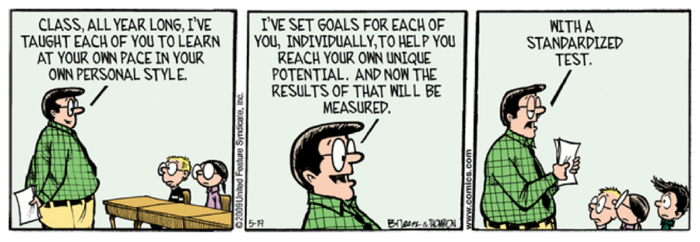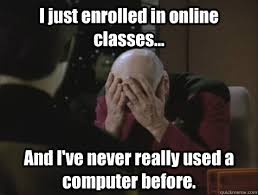The Blackboard grade center has all sorts of bell and whistles. I use it primarily to itemize every assignment graded in the course. Some of the grades I manually input into a field I create and other grades are automatically uploaded when tied to Blackboard. Students can check their grades online 24 hours a day, 7 days per week. They can see what they are missing if a zero is recorded for an assignment and they can view their percentage and letter grade in the course. The grades are automatically tallied, which is a great feature for those of us who are numerically challenged. I have buried all of my paper and pencil grade books and solely use the electronic grade center feature in Blackboard.
For more information about the grade center features Blackboard has to offer, this is from their website:
Access the Grade Center
You access the Grade Center from the Control Panel. Expand the Grade Center section to display the links to the Needs Grading page, the Full Grade Center, and the smart views. Click the right-pointing arrow next to the Grade Center heading to go directly to the Full Grade Center.
The Grade Center resembles a spreadsheet. Each row is populated by a user in your course and each column includes information for an item, such as an assignment, test, graded blog entry, or survey. You can also use columns to calculate grades.

The Needs Grading link allows you to view individual assignment, group assignment, and test attempts, as well as blog and journal entries, wiki page saves, and discussion posts ready for grading or review. To learn more, see the Needs Grading Page.
The Full Grade Center link displays all columns and rows in the Grade Center and is the default view of the Grade Center.
The smart view links appear as an indented list in the Full Grade Center section. A smart view is a focused look at the Grade Center and shows only the data that matches a set of criteria. You can use smart views to quickly find data when the Grade Center includes a great number of students and columns. For example, the default Tests smart view displays only test columns. You can create customized smart views and remove unneeded smart views. Click a smart view link to open the Grade Center using that view. To learn more, see Smart Views.
You can customize your view of the Grade Center and create grading schemas, grading periods, categories, and columns to present and gather the information you need. To learn more, see Customize the Grade Center.









